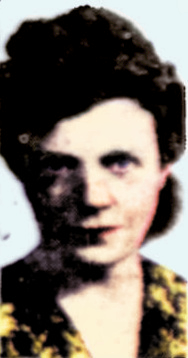The Pittsburgh Press (June 5, 1941)

I DARE SAY —
…
Two heroes
…
By Florence Fisher Parry
You read, of course, Chet Smith’s words about Lou Gehrig. You may have listened to Sam Balter’s broadcast, and all over America you could have read, and heard, much the same kind of tribute. A hero had died, and the whole world wept.
We loved that man – he was an American, he was everything we’d like to be. He was a man without guile and without malice. He played a clean, brave, brilliant game. He liked people. They liked him. He didn’t want to die, but he died with his chin up.
We breed a good breed here in America. When they’re good, they’re good.
Death is sad, it is terrible, it is the cruelest thing in nature. Nobody wants to die. It is lonely to die. It is the loneliest thing in the world. Nobody can help you or be with you. You have to meet it alone.
You think, when you think of Lou Gehrig’s dying, you think: that was tough.
But I know a hero who would tell you that there are things that are tougher. One thing much, much tougher. To have outlived your fame. To have been a hero, to have known great cheers, mightier ever than stadium cheers, cheers that rocked the world. To have felt the world’s warm tears shed over your own grief. To have known the dignity of renown and the hero-worship of the world and the glory of achievement.
And then to know hisses. And then to know repudiation and scorn.
Yes, I am thinking of two heroes and of the deaths they died. One was killed by a mortal disease. One was killed by defamation: Copperhead, Nazi, traitor. Names like that.
America raises up and America casts down. It is the American way.
America remembers and America forgets. It is the American way.
That other hero
Lou Gehrig. Life was good to him. He was one of America’s lucky heroes. There are those who would say that life treated him cruelly, but I say that life was merciful. He died beloved. Still young and remembered.
That other hero… I cannot bear to think of him. I cannot bear to think what must swim through his tired brain and fog his heart and drag at his feet when he hears the hisses, when he hears the unwelcome cheers, for they have come to sound the same to him… Remember (they warn), whatever you say will be used against you.
Young, both those heroes. Shy, honest, sincere. In both resided a supreme gift… the strange gift of perfect coordination, in muscle and nerve, in hand and eye… the same strange gift of feeling the mystic currents and signals of the ether around them. One became a master of baseball. One became a master of a plane. Precision genius, that was it. Infinitesimal exactitude…
They shared another trait: they both had dignity. They couldn’t subscribe to anything cheap. Or sensational. Or… commerical. No one ever tried to tamper with their characters. They were known to be incorruptibles.
Then – the likeness stopped. For the one liked people and the other was a solitary. The one was trustful and the other was suspicious. The one was generous, the other was chary. But both were Americans of the highest type and both were idols. No greater gift could have been theirs than the idolatry of the American public.
You can’t give a gift like that and take it away. It goes with a man to his grave, and beyond his grave. Whatever realm invites the soul of Lou Gehrig invites his trophies, too; and he would count it a poor heaven if he could not take with him the pride and adoration of his fans.
But we took them from Lindbergh. He will enter his eternal life hands empty of earthly prize. We tore them from his hands. We branded him with despicable epithets and mocked and scorned and killed him. Yes, killed him. What do you suppose remains ALIVE in a man who has been called a traitor?
Greater love hath no man than this: that he lay down his life for a friend. America was a friend of Lindbergh. He came to love it dearly. He risked his life to bring it fame; he refused wealth untold to keep his dignity, and so deserve its pride in him. He searched the seas and skies and lands of all the world, to bring back to the land he loved a true report. And when he did, he was resented. His findings did not check with what his country WANTED to believe.
Then came war. Then came emergency. Then came a wild undisciplined effort to defend ourselves against new implacable and superior forces – the same winged forces he had warned us of. And this young prophet who had been our hero advanced the bitter and unpopular premise thart we were not prepared and could not afford to risk entry in the war. He believed we were strong in peace and weak in war, he believed in a PRODUCTIVE, not destructive, America.
Believing this, he claimed the right to speak out what he believed.
OF COURSE the enemy exploited his patriotism. OF COURSE subversive powers set at work to capitalize upon an erstwhile hero’s stance. But did that make Lindbergh a Nazi? A traitor? A betrayer of his country?
You would think so. You would think so when you heard the boos and catcalls.